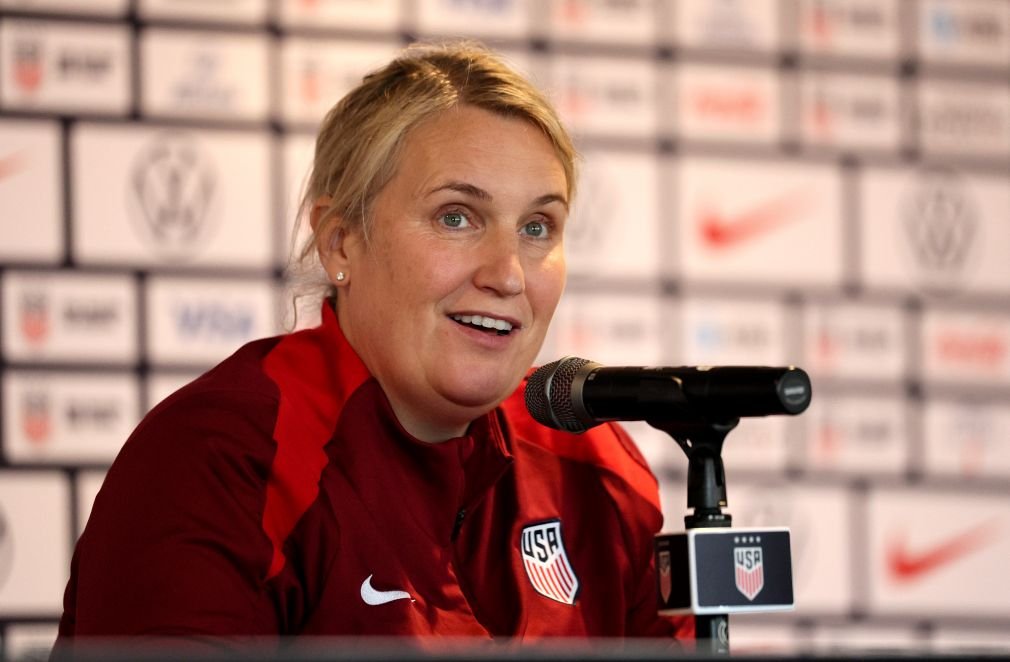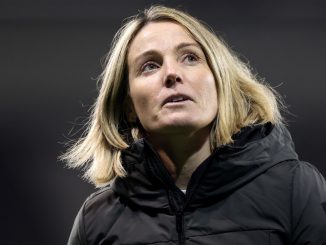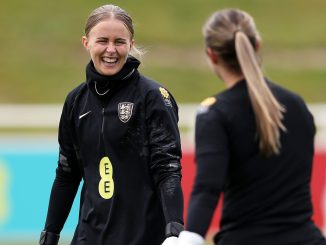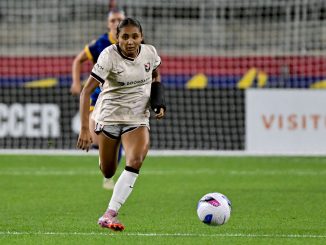
LOUISVILLE, KENTUCKY – OCTOBER 29: Emma Hayes the Head Coach of the United States Women’s National Team talks during a press conference in preparation of the USA match against Argentina at Lynn Family Stadium on October 29, 2024 in Louisville, Kentucky. (Photo by Andy Lyons/Getty Images)
Emma Hayes is one of the best coaches in the world – but when she watches her son play football, she stays quiet on the sidelines.
In a BBC interview, she said that as a child she had disliked it when her father pushed her too much when she was playing, so she does the opposite with her own child now.
“I was stood on the touchline in silence,” she said. “He said: ‘Mummy, why don’t you say something to me?’ I said: ‘Because I hated it when my dad did it to me, so I don’t want to do it to you.’ And he was really vocal that he actually wanted me to say a little bit more, and I was like: ‘OK.'”
She does, however, talk to him about the match afterwards.
“They played a game the other day… they lost 10-2. Inside, I was dying. And I got in the car and I was like: ‘What did you enjoy about it today?’ And he said: ‘Oh, I love playing out wide.’ I want him to keep that love for as long as possible.”
Hayes gave up playing football while still in her teens after suffering an ankle injury.
Her son, Harry, was born in May 2018.
Emma Hayes on life in the USA
Hayes announced two years ago that she would be leaving Chelsea to take over the US women’s national team, and she says that the thing she loves most about being in America is their appreciation of women’s sport.
“As a woman, we have to live our life in football through an entirely male lens and we’re different. We think differently, we have different needs, we experience the game differently.”
She added: “I did a conference the other day and they were asking about my earliest experiences with biases and they’ve been shaped from such a young age – whether it’s going on coaching courses where you were the only female, to referees coming over and going straight to your male assistant and thinking they’re the head coach.
“If you spoke out about certain things that people didn’t really necessarily view as aggressive behaviour, they didn’t realise the position that women might have felt in that situation.”




